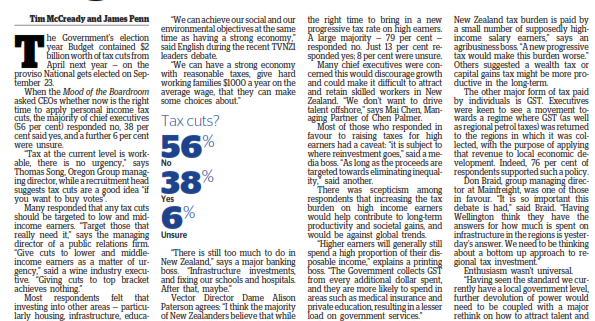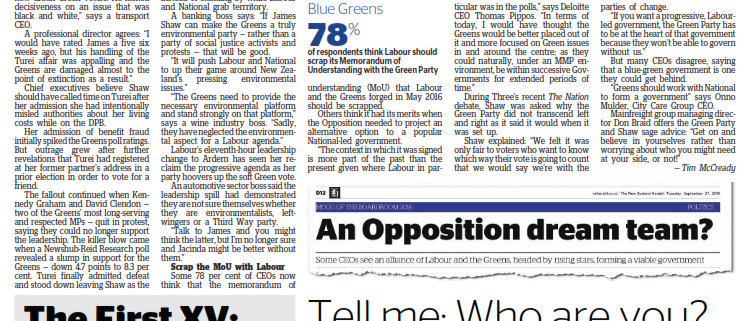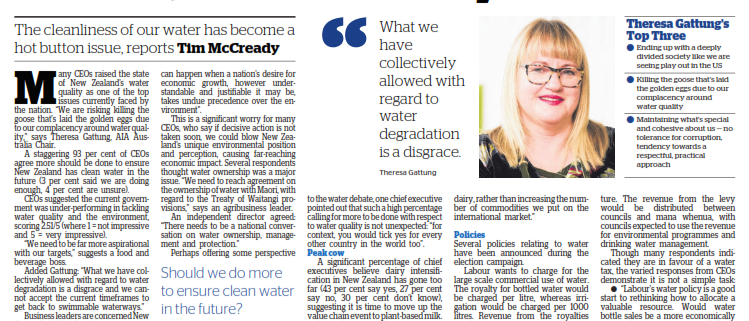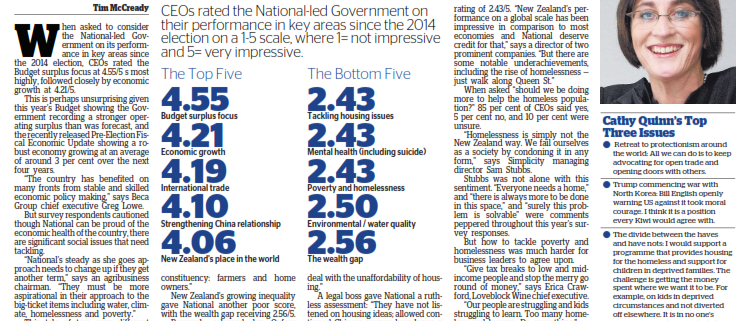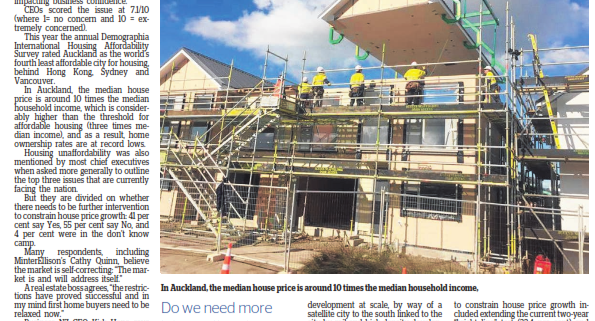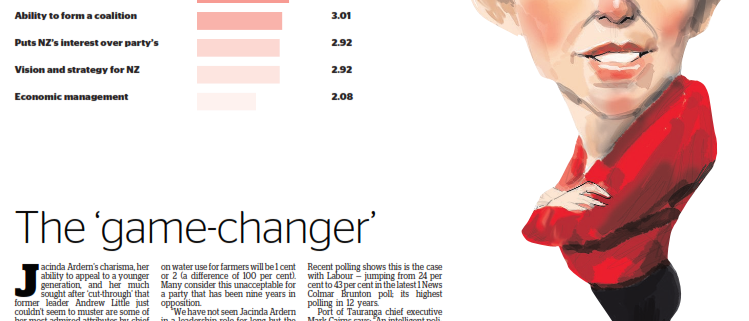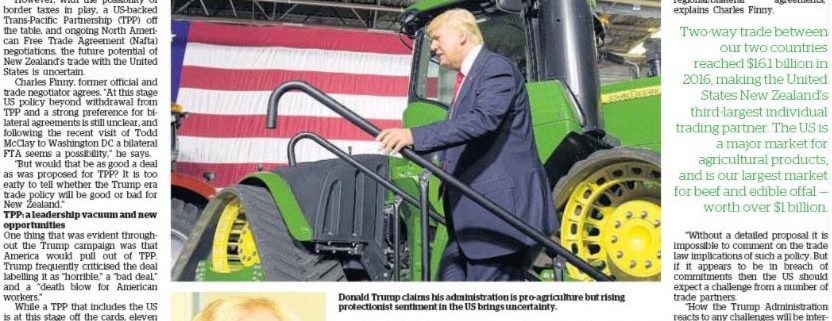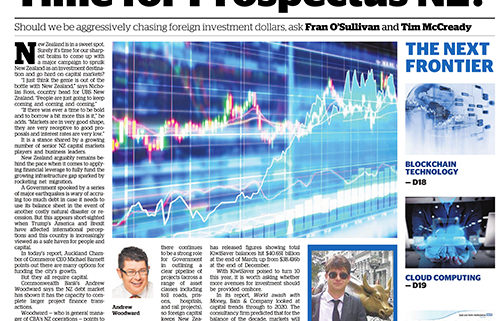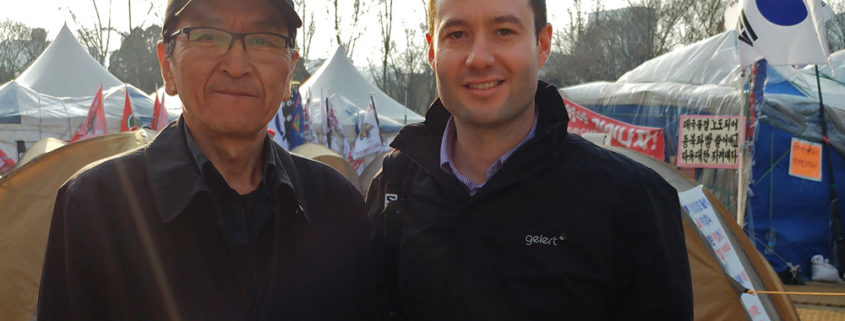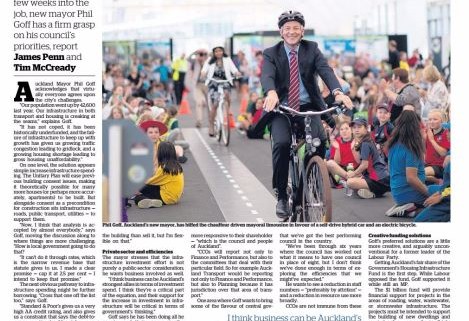Despite only being a few weeks into the job, new mayor Phil Goff has a firm grasp on his council’s priorities, report James Penn and Tim McCready
Auckland Mayor Phil Goff acknowledges that virtually everyone agrees upon the city’s challenges.
“Our population went up by 42,600 last year. Our infrastructure in both transport and housing is creaking at the seams,” explains Goff.
“It has not coped, it has been historically underfunded, and the failure of infrastructure to keep up with growth has given us growing traffic congestion leading to gridlock, and a growing housing shortage leading to gross housing unaffordability.”
On one level, the solution appears simple: increase infrastructure spending. The Unitary Plan will ease previous building consent issues, making it theoretically possible for many more houses (or perhaps more accurately, apartments) to be built. But alongside consent as a precondition for construction sits infrastructure — roads, public transport, utilities — to support them.
“Now, I think that analysis is accepted by almost everybody,” says Goff, moving the discussion along to where things are more challenging: “How is local government going to do that?
“It can’t do it through rates, which is the narrow revenue base that statute gives to us. I made a clear promise — cap it at 2.5 per cent — I intend to keep that promise.”
The next obvious pathway to infrastructure spending might be further borrowing. “Cross that one off the list too,” says Goff.
“Standard & Poor’s gives us a very high AA credit rating, and also gives us a constraint that says the debt-to-revenue ratio should not be more than 265 per cent. In next year’s budget, it will be 256 per cent,” he points out, with impressive adroitness for a man only five weeks into the job.
“I have very little freeboard, and I’m not about to give away prudential reputation or my credit rating — that will cost tens of millions, potentially hundreds of millions, of dollars — so I can’t borrow to do that.”
Selling the council’s assets — such as its 22.4 per cent holding in Auckland Airport — is also off the cards. Being a one-off solution, Goff says it doesn’t sufficiently address the revenue side of the equation on an ongoing basis to warrant consideration. Beyond the airport, the council’s asset ledger is rather limited.
Such is the extent of the need for cash, though, that Goff won’t entirely rule out selling the council’s own office building in the city.
“If I had to sell this building and lease it as the price of an arrangement with government — it’s not a strategic asset.
“All in all I’d probably rather keep the building than sell it, but I’m flexible on that.”
Private sector and efficiencies
The mayor stresses that the infrastructure investment effort is not purely a public-sector consideration; he wants business involved as well.
“I think business can be Auckland’s strongest allies in terms of investment spend. I think they’re a critical part of the equation, and their support for the increase in investment in infrastructure will be critical in terms of government’s thinking.”
Goff says he has been doing all he can to send that message to the business community, through discussions with key figures such as Auckland Chamber of Commerce’s Michael Barnett and the EMA’s Kim Campbell in particular.
Council-controlled organisations (CCOs) such as Ateed have been the subject of criticism from the business community in recent times, with Barnett outspoken on the recently-announced new slogan.
Goff is cognisant of the issues around CCOs and how they operate, pointing to Auckland Transport’s light-rail announcement earlier this year as an example. “The sense that I’ve got from being on the campaign trail is that Aucklanders by and large thought that the term ‘council-controlled organisation’ was a misnomer; that we’d set up a group of boards that had taken over the function of council but were not particularly responsive to them.”
How might that be addressed?
The council restructure already imple-mented will see CCOs reporting more directly to council committees, part of an overall effort to make them more responsive to their shareholder — “which is the council and people of Auckland”.
“CCOs will report not only to Finance and Performance, but also to the committees that deal with their particular field. So for example Auckland Transport would be reporting not only to Finance and Performance, but also to Planning because it has jurisdiction over that area of transport.”
One area where Goff wants to bring some of the flavour of central government with him is in utilising the existing accountability mechanisms available to councillors under the Auckland Council Act.
“I want the councillors themselves to be more effective in the manner of a cabinet committee, or even a select committee, in being able to cross-examine and interrogate the council-controlled organisations around their performance.”
The restructuring has also seen the overall number of council committees reduced from 19 to nine. Goff is searching for those sorts of efficiencies across the entire body.
“What I’m looking at is to ensure that we’ve got the best performing council in the country.
“We’ve been through six years where the council has worked out what it means to have one council in place of eight, but I don’t think we’ve done enough in terms of exploring the efficiencies that we might’ve expected.”
He wants to see a reduction in staff numbers — “preferably by attrition” — and a reduction in resource use more broadly.
CCOs are not immune from these efficiencies. Shared services are on the agenda, with functions such as human resources and procurement to be potentially merged and shared among multiple CCOs.
And a more radical restructuring, while not on the agenda, is not ruled out either.
“My first priority is to see that they can work as effectively as possible within the current structure,” explains Goff. “But over time if there seems to me to be a business case for amalgamating I wouldn’t rule that out. But it’s not on the top of my list of priorities, and no definite decision has been made around that.”
Creative funding solutionsGoff’s preferred solutions are a little more creative, and arguably unconventional for a former leader of the Labour Party.
Getting Auckland’s fair share of the Government’s Housing Infrastructure Fund is the first step. While Labour opposed the fund, Goff supported it while still an MP.
The $1 billion fund will provide financial support for projects in the areas of roading, water, wastewater, or stormwater infrastructure. The projects must be intended to support the building of new dwellings and must be from councils in “high-growth urban areas”.
“I would hope to get a significant share of that fund,” says Goff. “Done right, that will enable me to do a whole lot more.”
It’s no surprise that securing Auckland’s slice of the new fund is on the mayor’s agenda. But the idea of a petrol tax might raise a few more eyebrows. “I have been for quite some time a convert to a degree of user-pays in a system,” explains Goff.
“I always thought that was part of the National Party’s philosophy, and I can’t think of strong rational grounds for opposing it, other than — probably — no government wants to be associated with a new form of tax.”
The political ambition of such a plan is not lost on Goff, but he senses potential co-operation from central government in the future.
“I think there is room to negotiate there — it’s maybe about timing.
“The Government has already accepted that a congestion tax would make a lot of sense. A congestion tax is much harder to sell politically. It’s also much more effective because it changes behaviour.
“But nobody thinks that we can get a congestion tax in place short of maybe six or seven years. If you’re going to bring congestion charging in, you would need to set the infrastructure up and expend money on putting in place the admin system, when a fuel tax is simple, cheap, easy to administer, and interim.”
Goff stresses that last word: his fuel tax would be interim. And those raised eyebrows may furrow once the figures are canvassed — which he does, again with impressive acuity.
“Under the Auckland Transport Alignment Project there is a $4 billion deficit over 10 years. We’ve got to find $400 million a year extra to fund even a modest growth in infrastructure that will only slow and not reverse the level of congestion.”
The existing Interim Transport Levy will provide $60 million towards that total. Assuming the Government picks up 50 per cent of the tab, that still leaves a $140 million hole to fill. “A 10 per cent fuel tax probably would produce about $150 million,” argues Goff. “But it would at least make a direct connection between utilisation of the roads and paying for transport infrastructure.”
Another interesting source of revenue mooted is a targeted rate, imposed on large-scale developments. This could be paid off over 20 years, and would provide a revenue source which could in turn enable the council to invest in infrastructure that is required for those developments to actually come to fruition at all — or so the logic goes. “So someone might be paying a targeted rate over 20 years. But if it works, and we get more houses on the market, they’ll be paying a lower capital price than they would’ve if the housing crisis was allowed to continue.”
One important way Goff’s plan functions is that the increase in revenue doesn’t necessarily cover the entire increase in expenditure — it will simply provide the added revenue for council to leverage and take on more debt, while still remaining within the prudential levels demanded by the rating agencies.
Radical incrementalism? The preference for improvements within existing structures seems to be a hallmark of Goff’s thinking as he settles into his new role; a kind of ‘radical incrementalism’.
“It’s not so much that we lack instruments of accountability, but we haven’t properly used the ones that are already in place, and I want to try to work to ensure that that will occur,” he explains.
More stringent enforcement of standing orders is another small change — without overhauling the rules which already exist — that Goff has personally implemented. “A number of councillors have expressed a pleasure that council seems to be operating with a little more discipline and sense of purpose, and that’s what my intention for council will be”
Working with a new government
Goff’s approach to dealing with the Government seems decidedly non-partisan, and entirely unaffected by who sits at the helm. “I will deal with government in good faith, as I will this government or any other government,” says Goff. e”For New Zealand to succeed, Auckland has to succeed.
“I doubt that there’s a parliamentarian — apart from maybe Winston Peters, who has his own particular agenda about provincial areas — that wouldn’t accept that if Auckland fails it will come at a huge cost to the country.”
Goff joked that perhaps with more foresight he could have changed his approach to Twitter — having met with both Key and English the week prior to Key’s announcement, the mayor tweeted a photo with Key but not English. “Maybe I should’ve done it the other way around,” he laughs.

